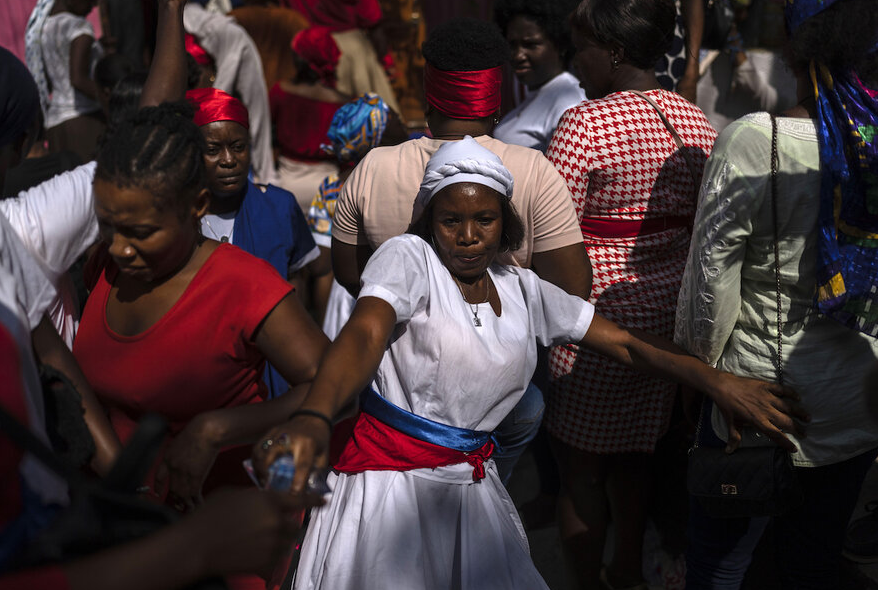Haiti’s Vodou Resurgence: Rising above the din of gunshots and unrest, the eerie song of Vodou practitioners echoes their hopes and concerns in a region beset by political instability and bloodshed.
On a recent afternoon, hundreds of worshippers gathered in a small Haitian church to honor St. George, a holy man in Catholicism and Vodou. As their nation’s predicament worsens, people pray to the saint and offer him money in the hopes that he will provide direction and protection.
“They can’t bury us,” they chant in a rebellious tone of Haitian Creole, expressing a sense of unwavering strength and determination. These lines capture the essence of a faith that was once rejected by society but is now being accepted and is providing comfort and strength to many.
Vodou has been marginalized and persecuted by politicians and intellectuals for generations. Despite this, its impact is growing as gangs terrorize communities with their relentless violence. In the midst of the mayhem around them, believers find solace and safety in its rituals and customs.
Vodou is deeply rooted in Haitian history and culture. It sparked a revolution that ultimately led to Haiti’s establishment as the first free Black republic in the world, and it fueled the struggle for independence. Vodou is a syncretic religion that originates in West Africa and was brought to Haiti by enslaved Africans. It combines aspects of Catholicism and animist beliefs.
Vodou theology revolves around the notion of “Bondye,” the Good God, and a group of supernatural beings called “lwas.” At rituals, people make offerings to these spirits—both good and bad—in the hopes of winning their favor. The offerings can range from papayas to popcorn.
As gang violence and government incompetence have escalated in recent years, Vodou’s popularity has skyrocketed. Oungans, who are Vodou priests, get an overwhelming number of desperate requests for assistance, ranging from finding missing loved ones to obtaining medication that could save their lives.
Being a fourth-generation oungan, Cecil Elien Isac has seen this upsurge of interest personally. A little temple in Port-au-Prince has grown into a thriving community of more than four thousand adherents, hailing from all corners of the globe. Once on the periphery of Haitian society, Vodou is today a thriving and essential component of Haitian culture, impacting visual art, literature, music, and dance.
A common saying that encapsulates the ubiquitous presence of Vodou captures the actual number of practitioners, albeit it is unknown: “Haiti is 70% Catholic, 30% Protestant, and 100% Vodou.” In a nation where people are afraid for their safety, Vodou gives its followers a sense of community and strength.
Of the many lwas found in Vodou mythology, the god Ogou Je Wouj—a representation of courage and fortitude in trying times—has recently become more revered. Many Haitians feel a strong connection to this warrior deity as the country continues to face serious security threats.
Amidst the rhythmic beat of drums and the flickering lighting, Vodou practitioners find strength and peace in their common faith during the silent moments between chants and offerings. As they raise their voices in song and prayer, they hold fast to the belief that their voices will finally triumph over the darkness that looms over them in a land marked by violence and division.













